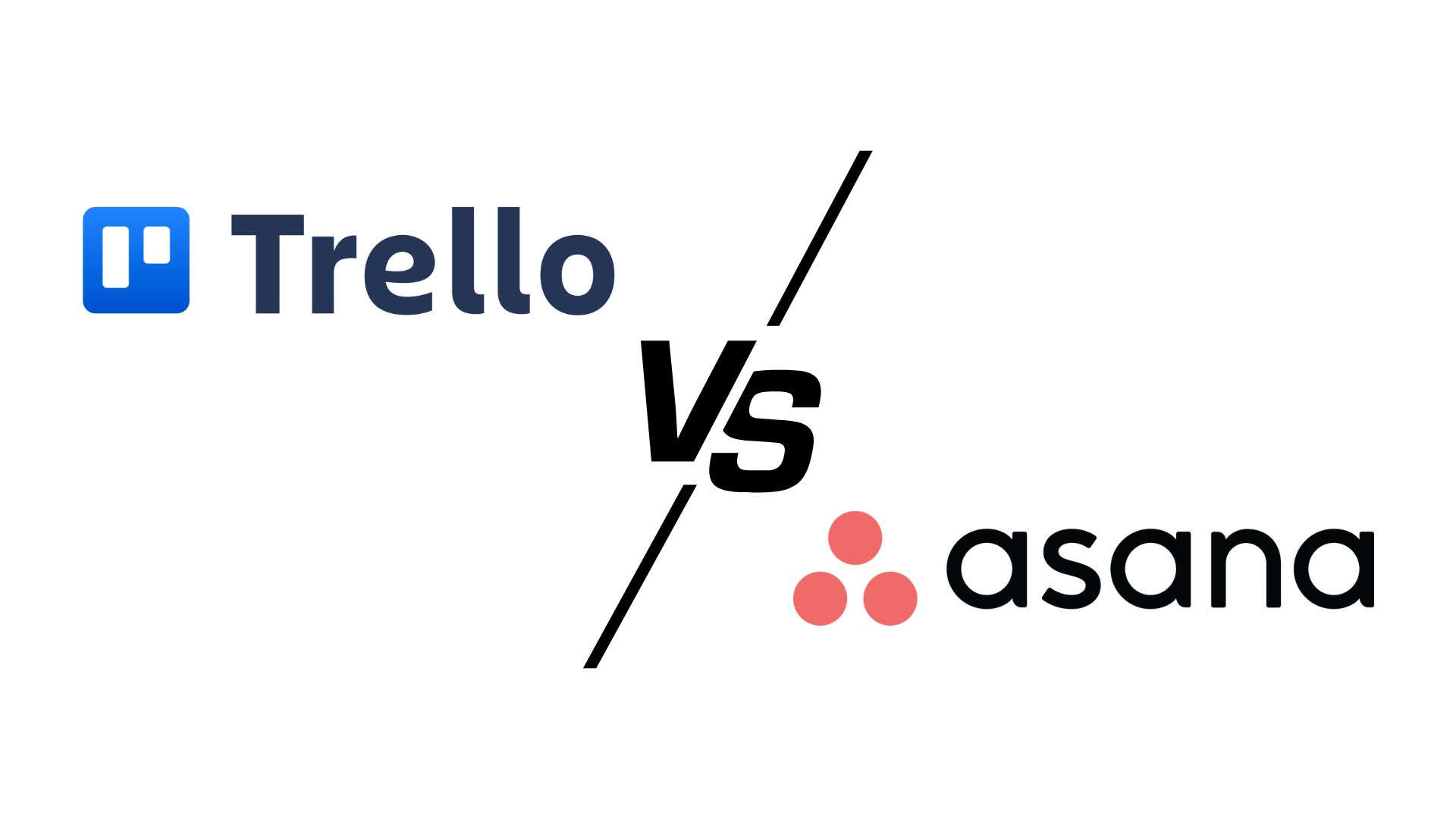Job Interview Statistics By Application Sent, Duration, Industry And Facts
Updated · Dec 19, 2024

Table of Contents
- Introduction
- Editor’s Choice
- Interview By Application Sent
- Effect of The Interview on Unemployment
- Annoying Habits Hiring Manager Faces
- The Reason Why People Lie During Interviews
- Common Lies During Job Interviews
- Average Job Interview Duration
- Discrimination Grounds During The Job Interview
- Challenges While Interview Scheduling
- Proceed to Interview By Industry
- Top Trends in The Recruitment Process
- Job Interview Sources
- Conclusion
Introduction
Job Interview Statistics: Job interviews are a critical junction in one’s professional journey, representing a pivotal moment where career aspirations meet potential opportunities. In today’s competitive job market, understanding the nuanced landscape of interviews can provide job seekers with invaluable insights. Going through Job Interview Statistics, we can deeply dive into various aspects of the recruitment process, revealing trends, challenges, and behaviours that shape modern employment interactions.
These statistics illuminate the complex pathways individuals navigate from application strategies to interview dynamics while seeking meaningful professional roles.
Editor’s Choice
- Only 38.3% of job applicants receive interviews when sending 1-10 applications
- 65% of hiring managers are annoyed by candidates with no eye contact
- Real estate has the highest share of job interviews at 20%
- 42% of candidates lie about their interest in a job offer
- Soft skills are the top recruitment trend for 59% of employers
- 94% of job seekers reduce unemployment within 5 weeks of receiving an offer
- The average job interview duration is 10-30 minutes for 63% of respondents
- Age is the most common discrimination ground in interviews, at 16%
- 42% of job interviews are sourced through online applications
- 24% of people lie during interviews due to prolonged unemployment
- Interview availability challenges: 78% of HR professionals
- Candidates sending 81+ applications have a 29.9% chance of eight or more interviews
- 54% of employers consider the interview process a critical recruitment trend
- Foreign language skills are commonly exaggerated by 27% of candidates
- Educational background is a discrimination factor for 10% of interview processes
Interview By Application Sent
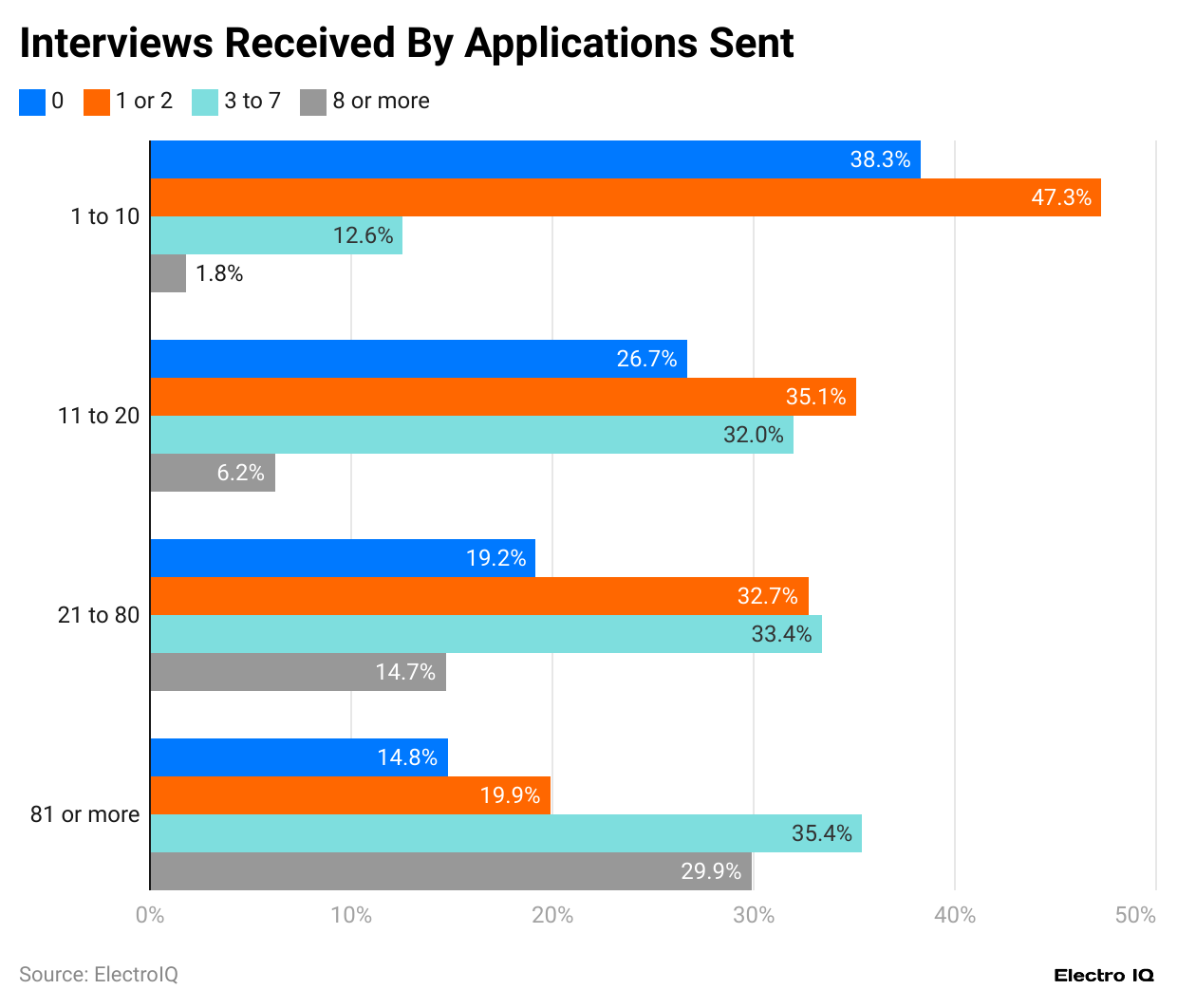
(Reference: zippia.com)
- Among respondents who sent 1 to 10 job applications, 38.3% had no interviews, 47.3% received 1 or 2 interviews, 12.6% obtained 3 to 7 interviews, and 1.8% secured eight or more interviews.
- For those who sent 11 to 20 applications, 26.7% had no interviews, 35.1% received 1 or 2 interviews, 32.0% obtained 3 to 7 interviews, and 6.2% secured eight or more interviews.
- Respondents sending 21 to 80 applications saw 19.2% with no interviews, 32.7% receiving 1 or 2 interviews, 33.4% obtaining 3 to 7 interviews, and 14.7% securing eight or more interviews.
- When 81 or more applications were sent, 14.8% of respondents had no interviews, 19.9% received 1 or 2 interviews, 35.4% obtained 3 to 7 interviews, and 29.9% secured eight or more interviews.
Effect of The Interview on Unemployment
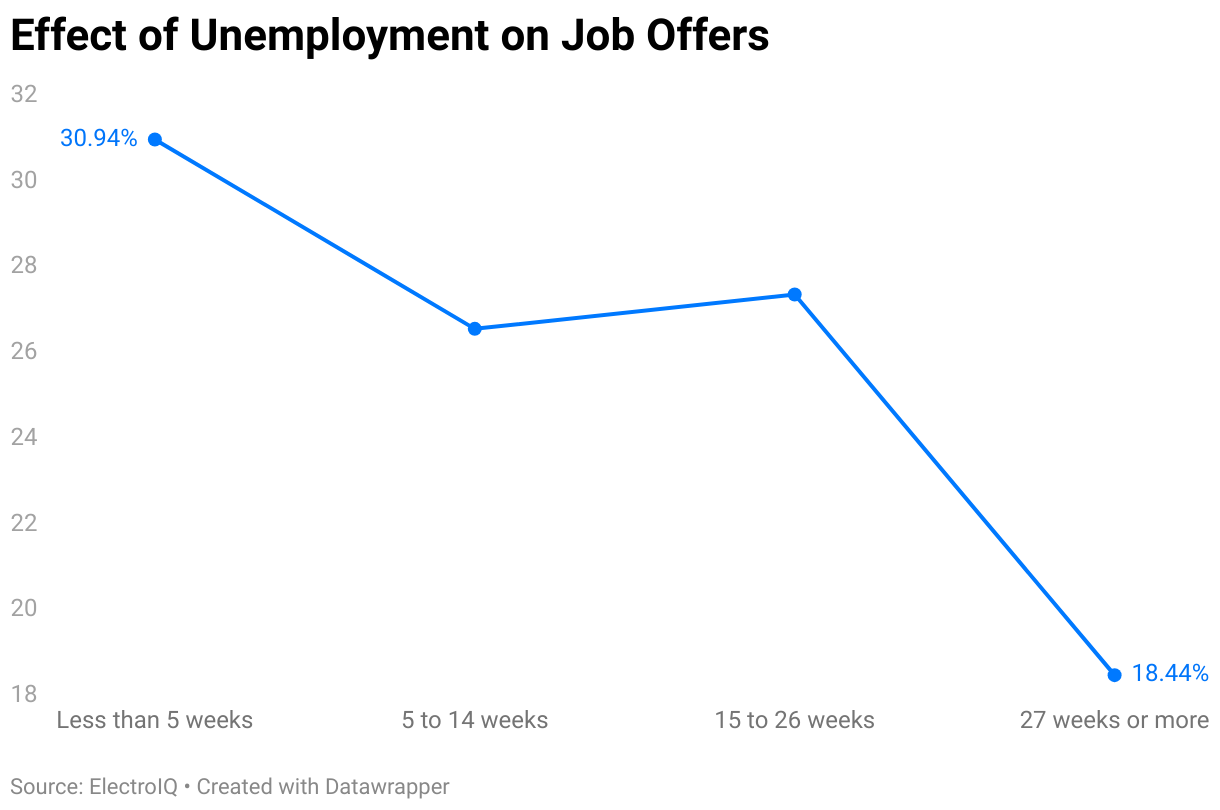
(Reference: zippia.com)
- Within less than 5 weeks of receiving a job offer, the unemployment rate decreased by 30.94%, as reported by 30.94% of respondents.
- Between 5 and 14 weeks after securing a job offer, the unemployment rate dropped to 26.52%, according to 26.52% of respondents.
- Within 15 to 26 weeks post-receiving a job offer, the unemployment rate was recorded at 27.32%, as indicated by 27.32% of respondents.
- After 27 weeks or more following a job offer, the unemployment rate further reduced to 18.44%, as noted by 18.44% of respondents.
Annoying Habits Hiring Manager Faces
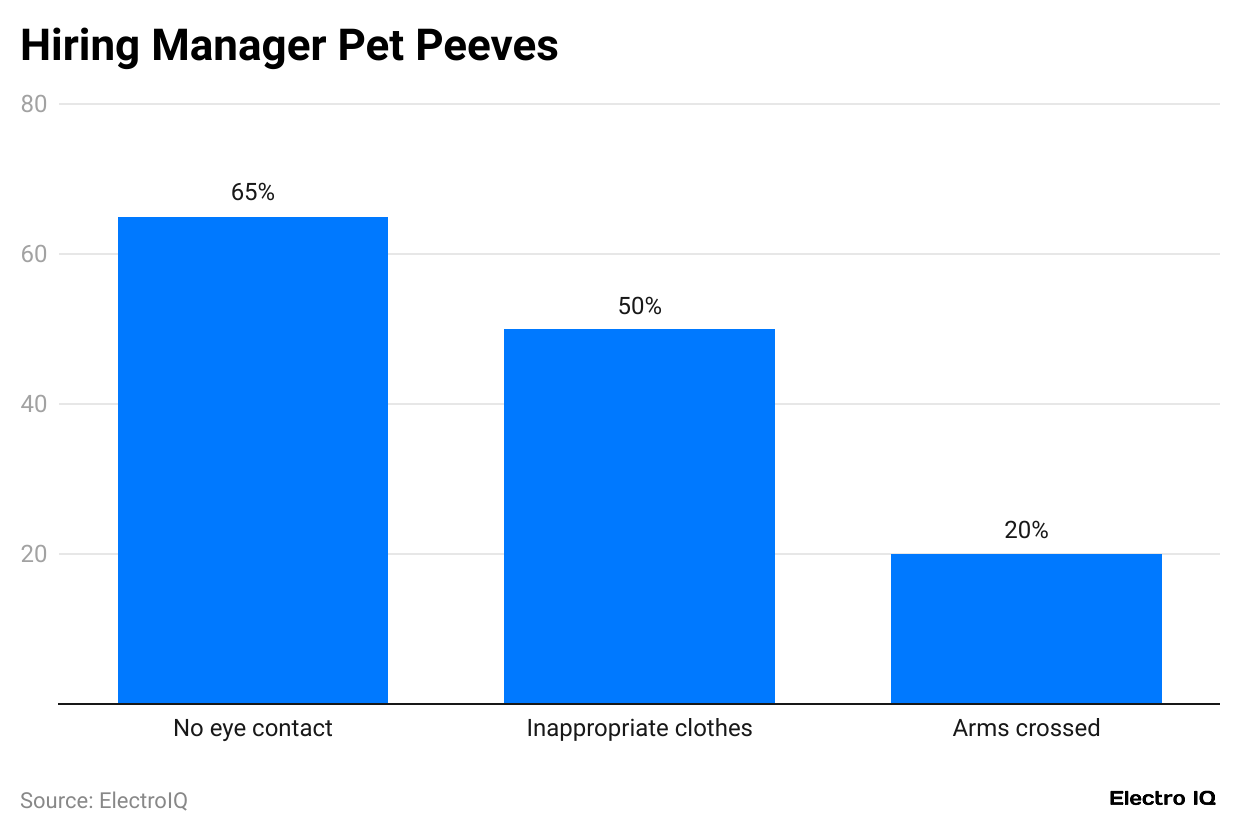
(Reference: zippia.com)
- Job Interview Statistics show that no eye contact is the most prominent factor that annoys hiring managers, according to 65% of the respondents.
- Inappropriate clothes annoy hiring managers, according to 50% of the respondents.
- Arms crossed is another factor that annoys hiring managers, according to 20% of the respondents.
The Reason Why People Lie During Interviews
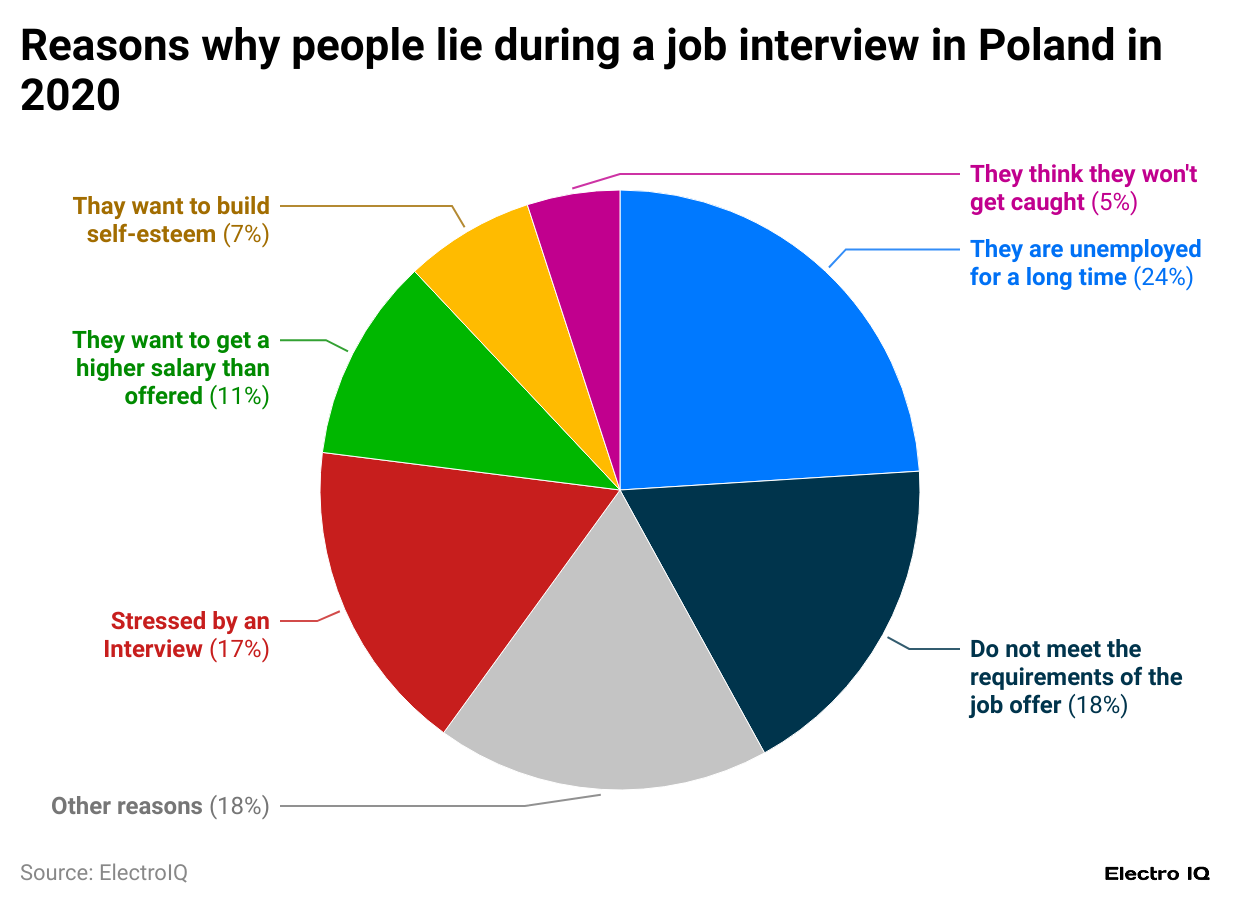
(Reference: statista.com)
- 24% of respondents admit to lying during job interviews due to prolonged unemployment.
- 18% of respondents lie because they do not meet the job offer requirements or for other unspecified reasons.
- 17% of respondents cite interview stress as the reason for their dishonesty.
- 11% of respondents lie to negotiate a higher salary than what is initially offered.
- 7% of respondents lie during interviews to enhance their self-esteem.
- 5% of respondents believe they will not get caught, which leads them to lie.
Common Lies During Job Interviews
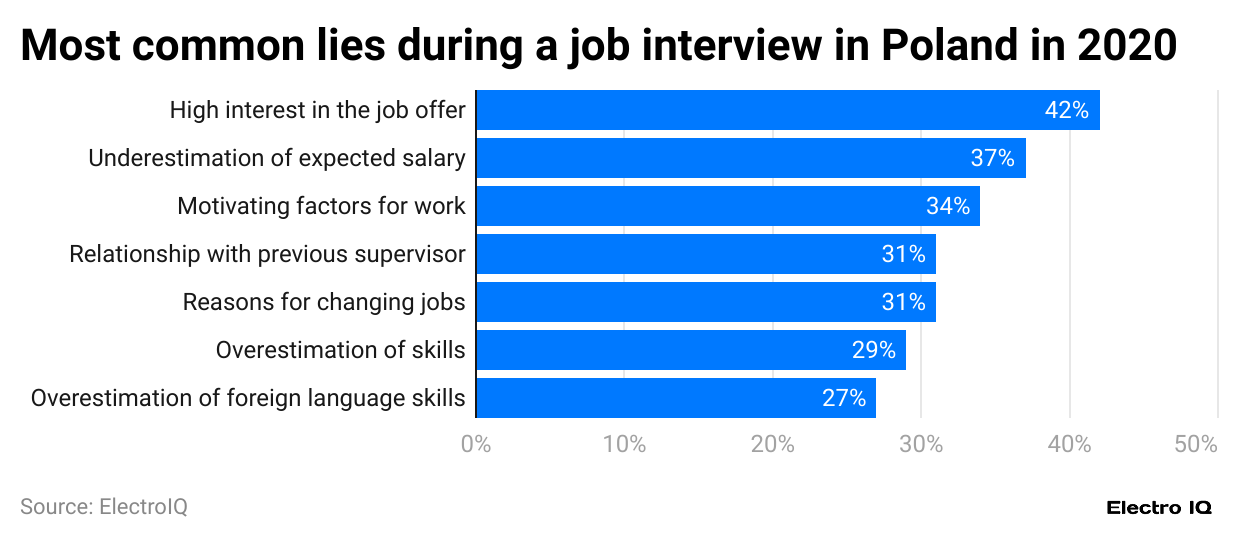
(Reference: statista.com)
- Job Interview Statistics show that having a high interest in the job offer is the most common lie during the interview, as per 42% of respondents.
- Underestimation of expected salary is a common lie during the interview, as per 37% of respondents.
- Motivating factors for work are exaggerated during the interview, as per 34% of respondents.
- Relationships with the previous supervisor and reasons for changing jobs are lied about during the interview, as per 31% of respondents each.
- Overestimation of skills is a common lie during the interview, as per 29% of respondents.
- Overestimation of foreign language skills is a common lie during the interview, as per 27% of respondents.
Average Job Interview Duration
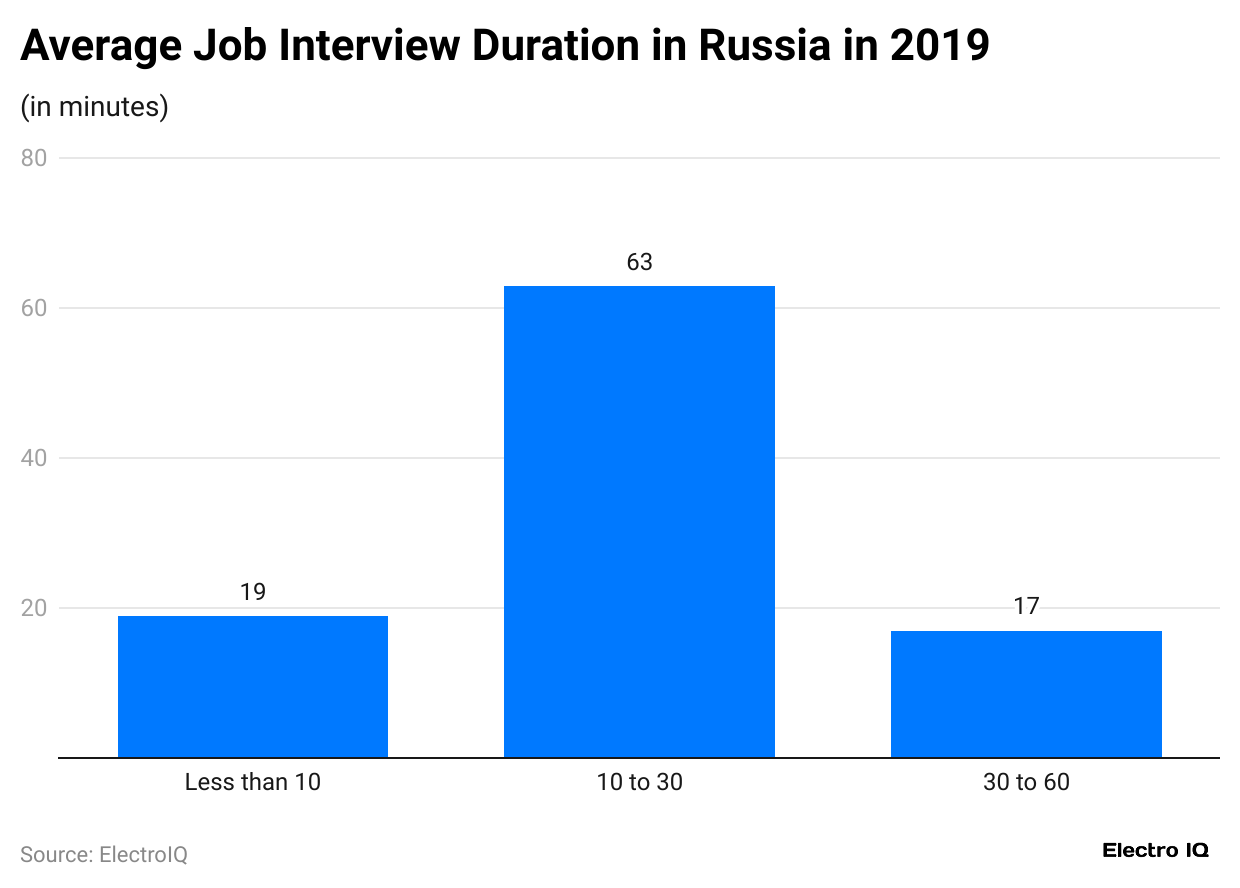
(Reference: statista.com)
- According to 63% of respondents, the average job interview duration ranges from 10 to 30 minutes.
- For 19% of respondents, job interviews lasted less than 10 minutes.
- Interviews lasting 30 to 60 minutes were reported by 17% of respondents.
Discrimination Grounds During The Job Interview
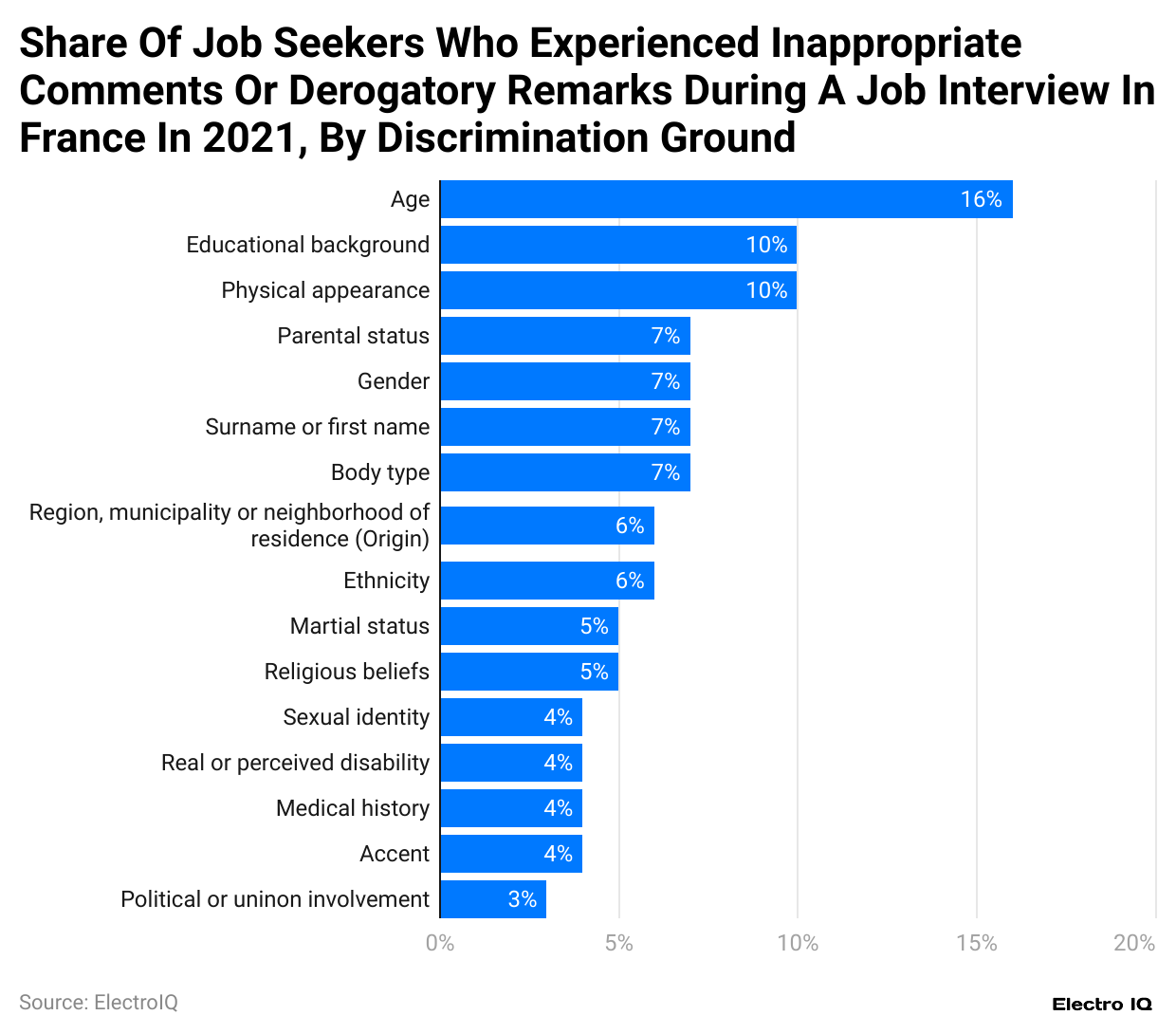
(Reference: statista.com)
- Age is the most frequently reported ground for discrimination during job interviews, identified by 16% of respondents.
- Educational background and physical appearance are each cited by 10% of respondents as common bases for discrimination.
- Parental status, gender, surname or first name, and body type are each reported by 7% of respondents.
- Region, municipality, or neighbourhood of residence (origin) and ethnicity are each noted by 6% of respondents.
- Marital status and religious beliefs are each grounds for discrimination according to 5% of respondents.
- Sexual identity, real or perceived disability, medical history, and accent are each mentioned by 4% of respondents.
- Political or union involvement is the least cited, with 3% of respondents reporting it as a ground for discrimination.
Challenges While Interview Scheduling
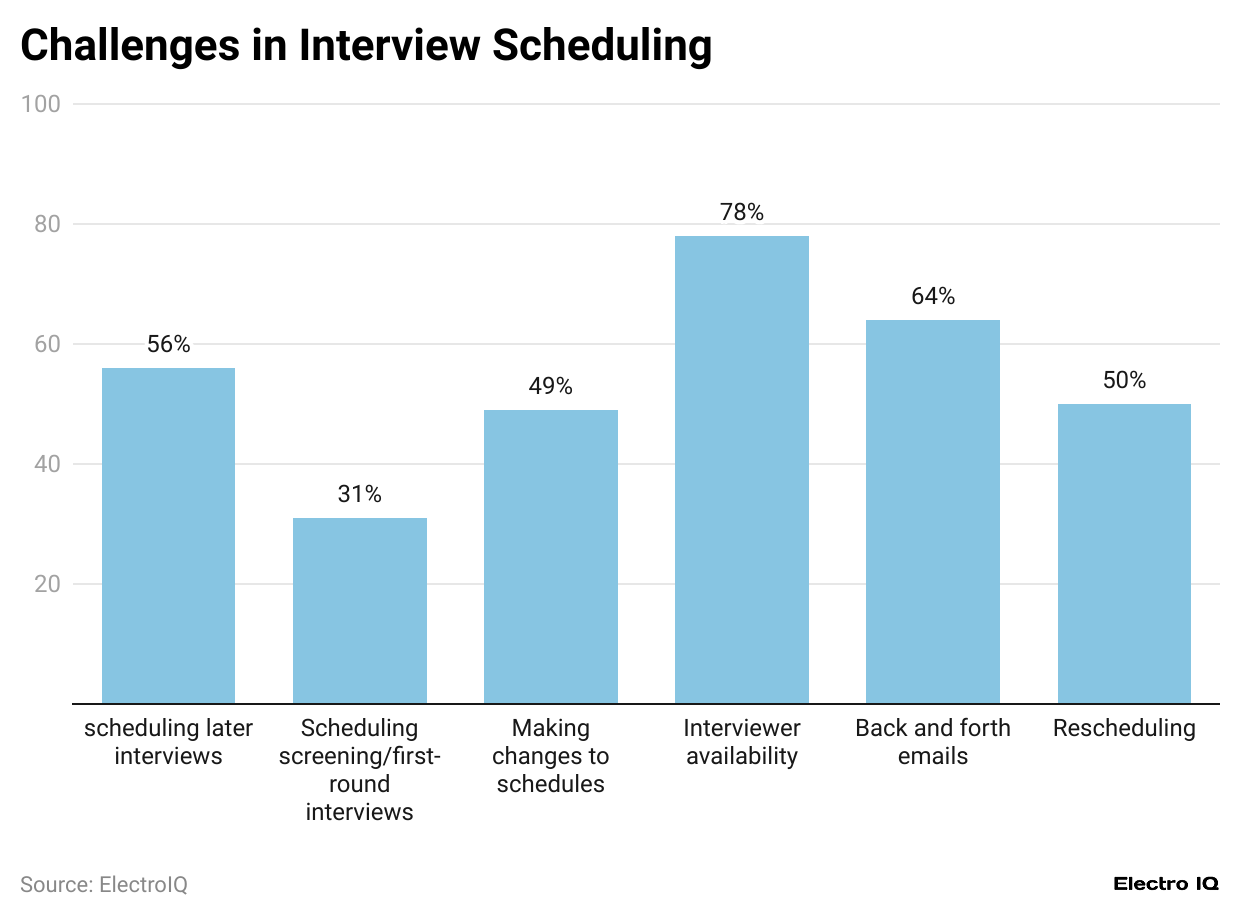
(Reference: hr.com)
- Job Interview Statistics show that interview availability is the most common challenge HR faces, as per 78% of respondents.
- Back-and-forth emails are a significant challenge, as per 64% of respondents.
- Rescheduling is a common challenge, as per 50% of respondents.
- Scheduling later interviews with hiring managers or multiple interviewers is a challenge, as per 56% of respondents.
- Making changes to interview schedules is a challenge, as per 49% of respondents.
- Scheduling screening or first-round interviews is the least common challenge, as per 31% of respondents.
Proceed to Interview By Industry
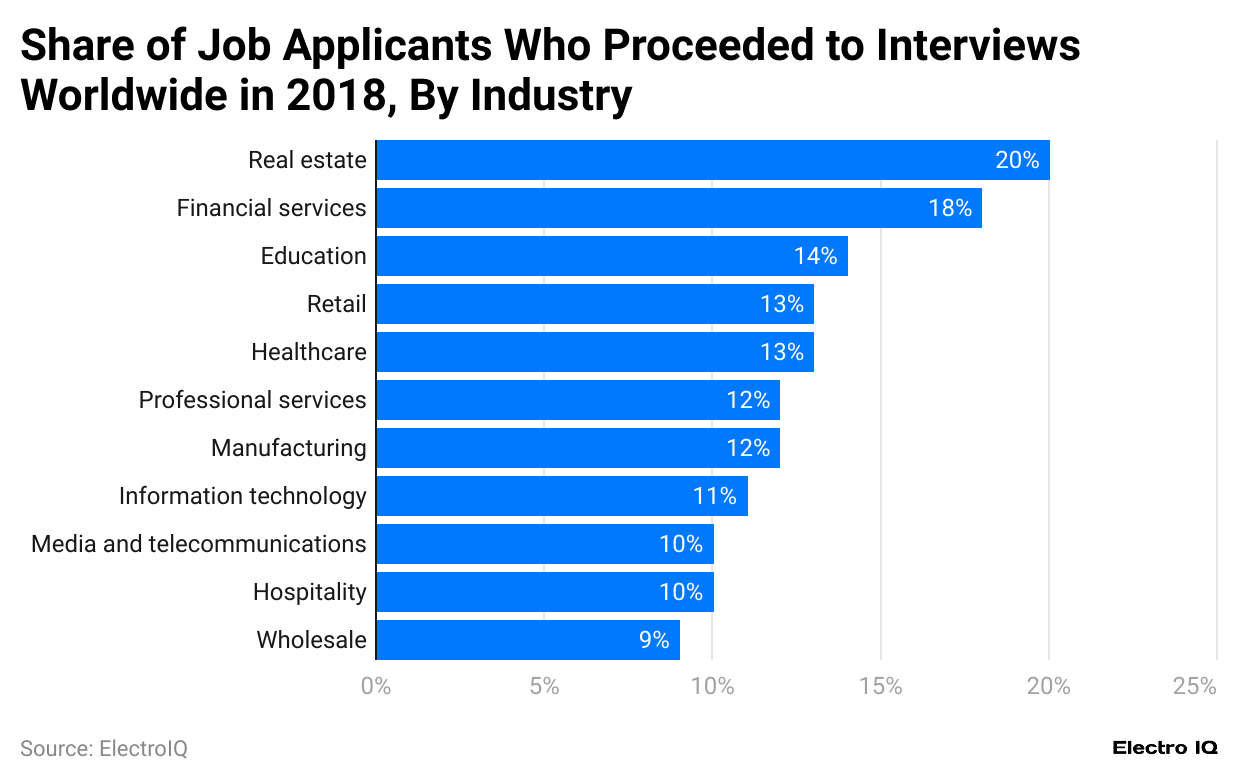
(Reference: statista.com)
- Job Interview Statistics show that real estate is the industry with the highest share of interviews per 20% of respondents.
- Education is the industry with a significant share of interviews, as per 14% of respondents.
- Retail and healthcare are industries with a notable share of interviews, as per 13% of respondents each.
- Professional services and manufacturing are industries with a considerable share of interviews, as per 12% of respondents each.
- Information technology is an industry with a notable share of interviews, as per 11% of respondents.
Top Trends in The Recruitment Process
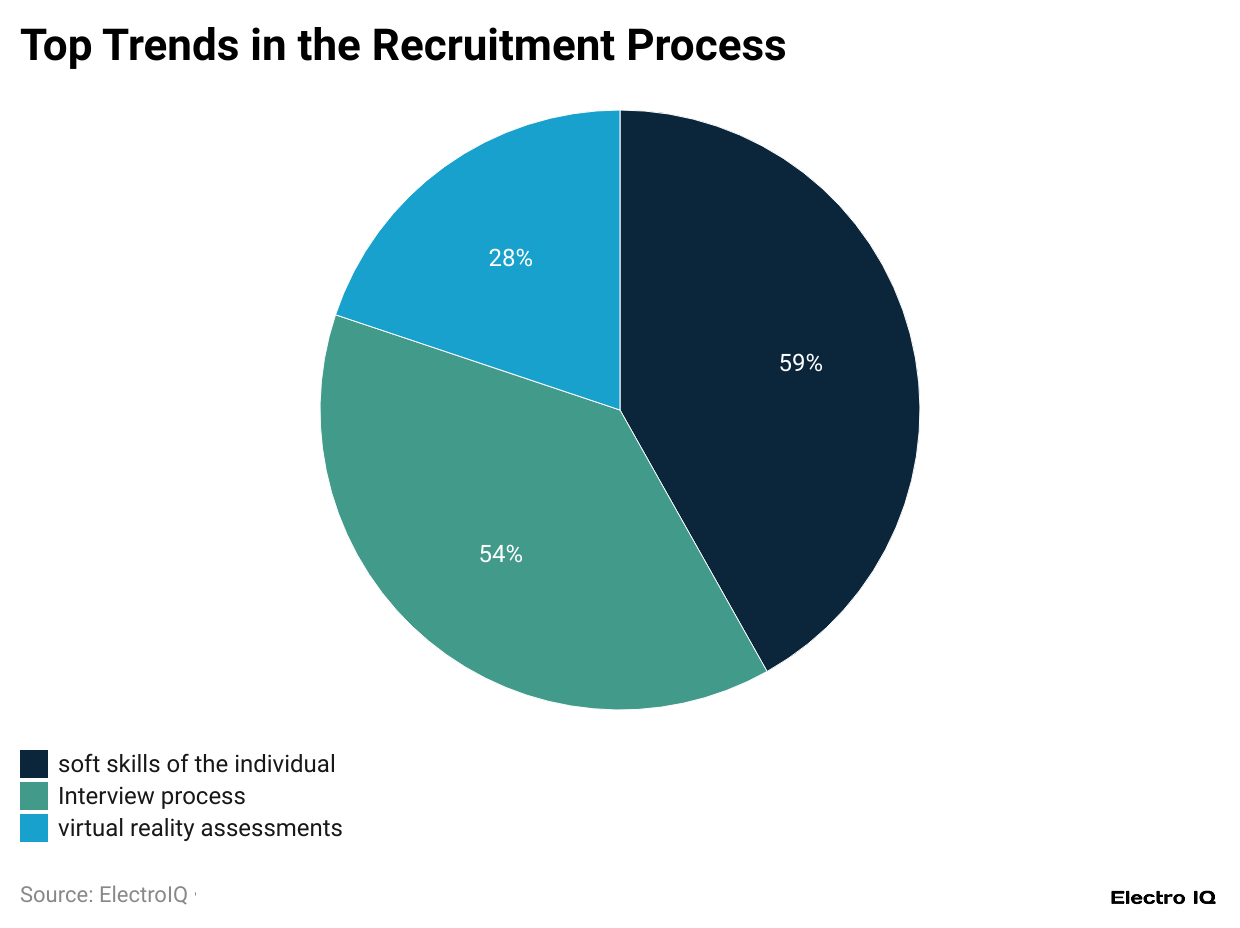
(Reference: workonic.com)
- Job Interview Statistics show that the soft skills of individuals are the top trend in the recruitment process, as per 59% of respondents.
- The interview process is a top trend for 54% of respondents.
- 28% of the respondents feel virtual reality assessment is a top trend in the recruitment process.
Job Interview Sources
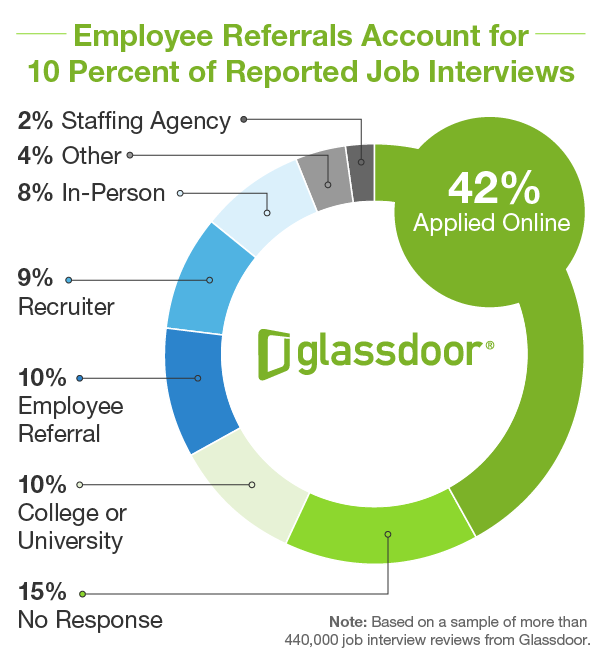
(Reference: glassdoor.com)
- Job Interview Statistics show that 42% of respondents have applied online as a source of interviews.
- 15% of respondents have yet to respond.
- 10% of respondents cited employee referrals as a source of interviews.
- 10% of respondents cited college or university as a source of interviews.
- 9% of respondents cited recruiters as a source of interviews.
Conclusion
The landscape of job interviews is complex and multifaceted, revealing intricate dynamics between job seekers and employers. Job Interview Statistics show that it underscores the importance of preparation, authenticity, and strategic approach in modern recruitment processes. Candidates must recognise that interviews are not merely transactional exchanges but nuanced interactions where personal presentation, skills, and communication play pivotal roles.
Organisations can build more robust, diverse, and talented teams by understanding candidate behaviours, addressing scheduling challenges, and focusing on holistic evaluation beyond traditional metrics. Continuous learning, adaptability, and mutual understanding will remain key to successful professional relationships as the job market evolves.
Sources
FAQ.
For 1-10 applications, around 47.3% of applicants receive 1-2 interviews.
Prolonged unemployment, with 24% of candidates admitting to dishonesty.
Most interviews (63%) last between 10-30 minutes.
The top sources are online applications (42%), employee referrals (10%), and universities (10%).
The most common annoyances are lack of eye contact (65%) and inappropriate clothing (50%).
About 30.94% reduce unemployment within 5 weeks of receiving a job offer.
The most common lies are exaggerating interest in the job (42%) and understating salary expectations (37%).
The industries with the most opportunities are real estate (20%), education (14%), and retail/healthcare (13% each).
The main challenges are coordinating interview availability (78%) and managing back-and-forth emails (64%).
Employers are focusing on soft skills (59%), improving the interview process (54%), and exploring virtual reality assessments (28%).

Joseph D'Souza founded ElectroIQ in 2010 as a personal project to share his insights and experiences with tech gadgets. Over time, it has grown into a well-regarded tech blog, known for its in-depth technology trends, smartphone reviews and app-related statistics.









